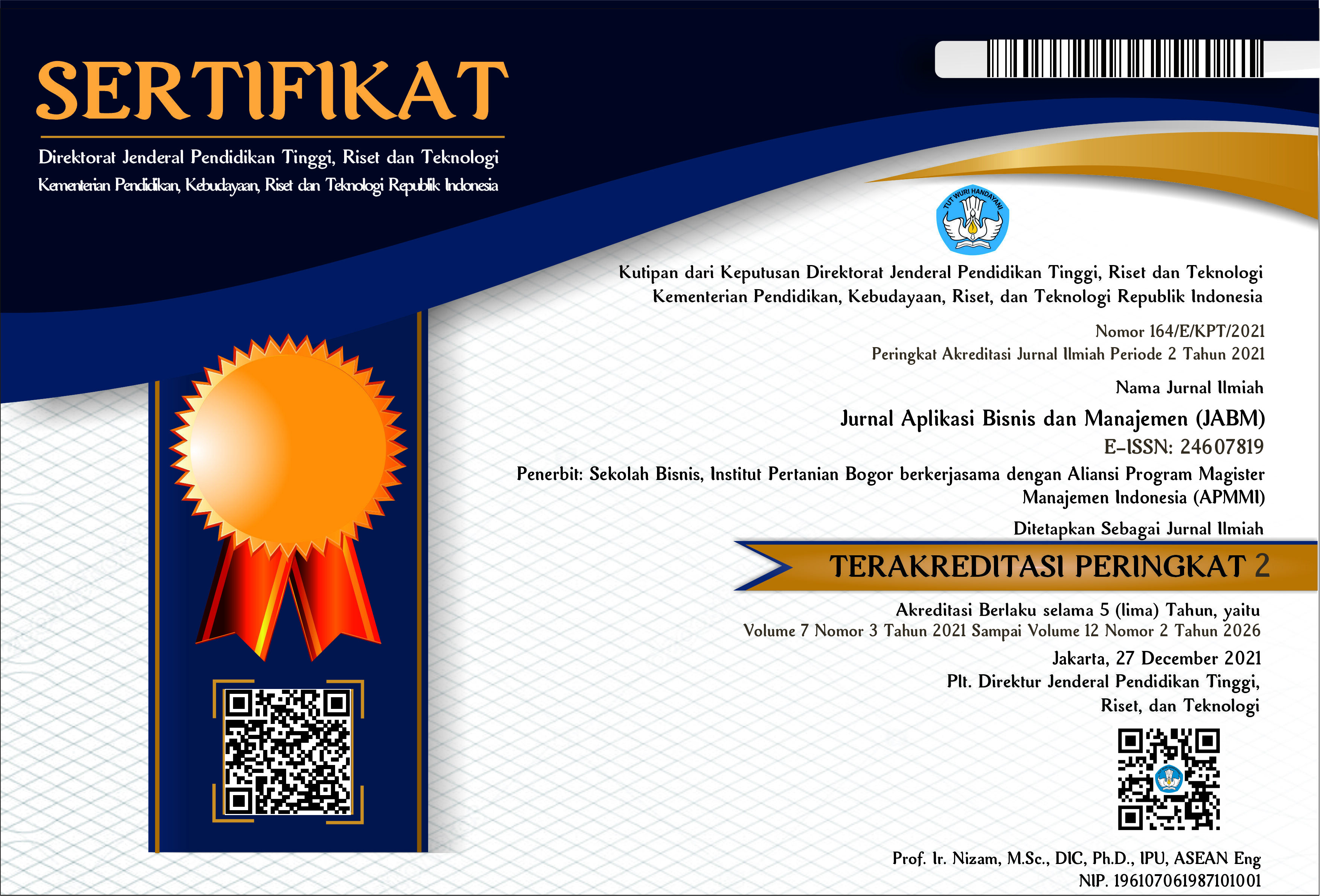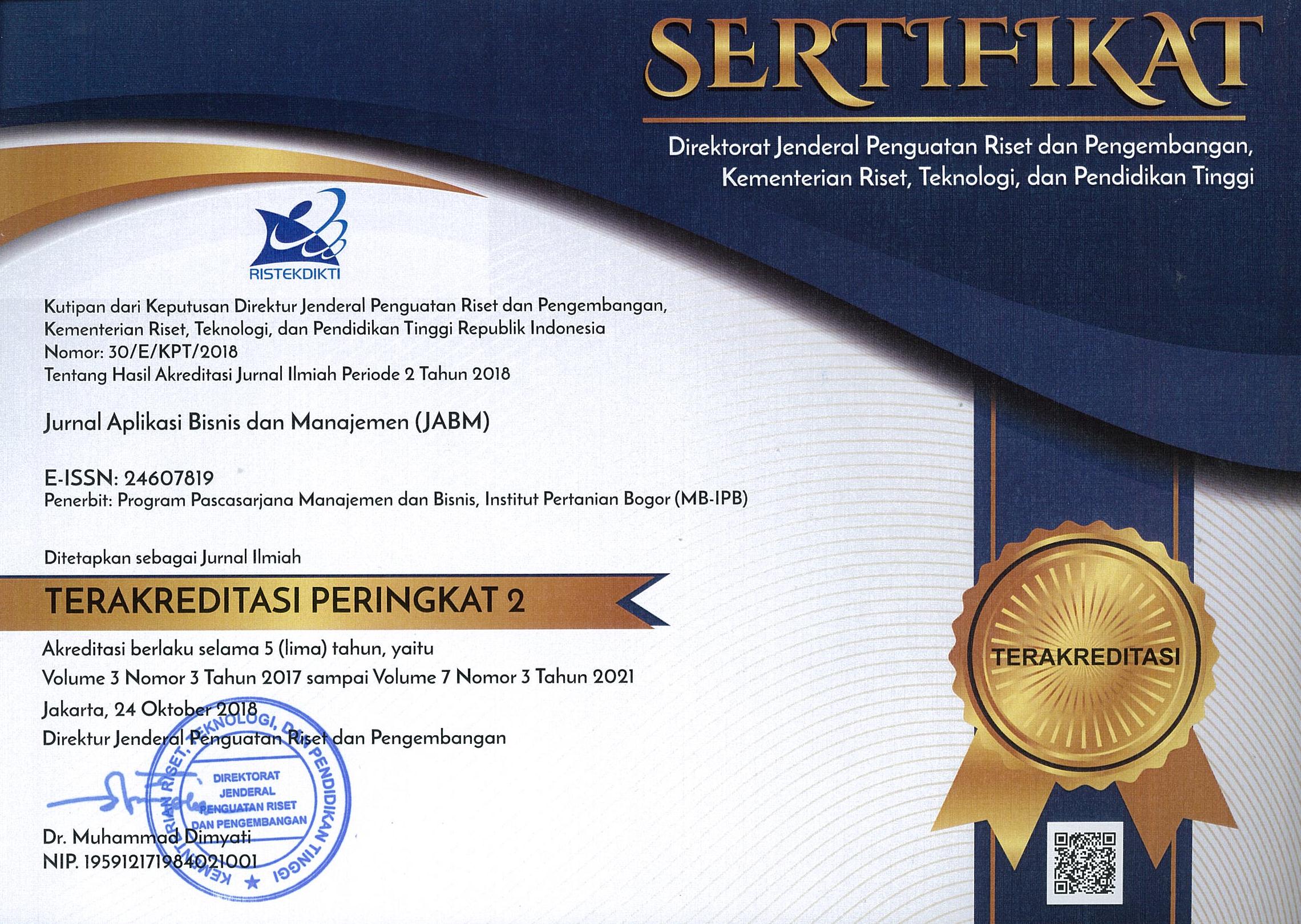Optimizing Job Performance Through Perceived Organizational Support and Self Efficacy: The Mediating Role of Work Engagement
Abstract
Background: This research examines the importance of perceived organizational support (POS) and self efficacy (SE) in optimizing job performance (JP) through work wngagement (WE) in medical recorders. Optimal performance of medical recorders will have an impact on improving the quality of health services.
Purpose: This paper aims to determine the effects of POS and SE on WE and JP, the effect of WE on JP, and also the mediating role of WE between POS and SE on JP in medical recorders.
Design/Methodology/Approach: Data was gathered based on census with the help of a structured questionnaire from 161 medical recorders who are members of PORMIKI group in Yogyakarta. SmartPLS was used to test the proposed structural model.
Findings/Result: The findings revealed that POS has a positively significant effect on WE. Additionally, SE has a positively significant effect on WE. However, POS does not have a direct effect on JP. Conversely, SE has a positively significant effect on JP. Moreover, WE has a positively significant effect on JP.
Conclusion: WE has an important role in mediating POS and SE towards JP. Practical implications suggest that management can create policies that imply justice and productivity. As practitioners, medical recorders should upgrade themselves to improve their performance.
Originality/Value (state of the art): This study contributes toward JP to adding knowledge and providing insight into the mediating role of WE for medical recorders in healthcare, which prior studies only focused on non-health institutions or companies. In addition, this research highlights the combination of four interrelated variables.
Keywords: job performance, medical recorder, perceived organizational support, self efficacy, work engagement







